Visiting the “Vikingarnas Värld” (The World of Vikings) exhibition at the Historiska Museum in Stockholm turned out to be a far more immersive and engaging experience than we expected. With this new exhibition, Historiska sets a new benchmark for presenting thematic museum collections.
Its strong focus on accessibility, inclusivity, and multisensory engagement makes it a perfect example of how modern, interactive museum exhibitions should be designed.
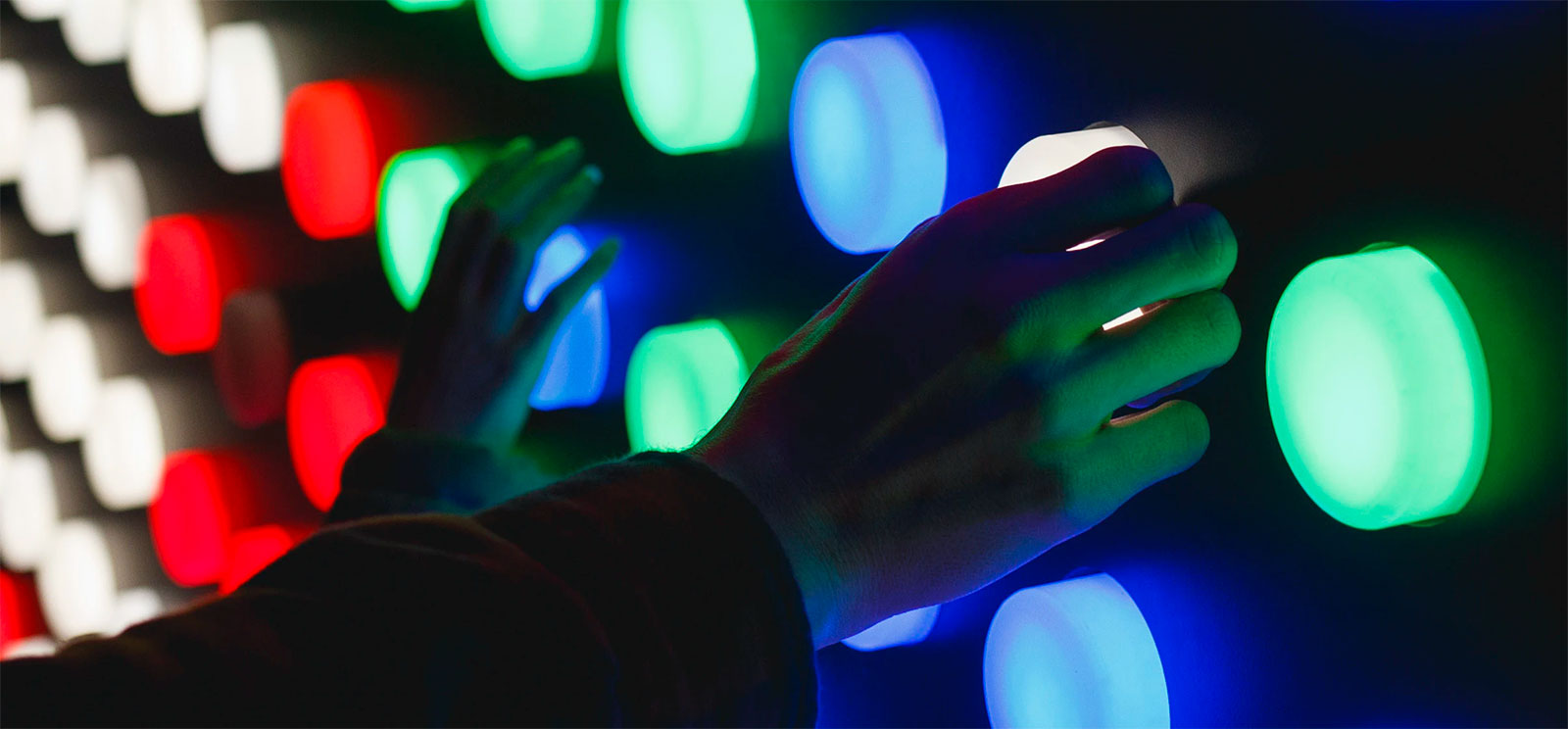
Multisensory engagement is the ability to involve multiple senses in the learning process. In a museum setting, a multisensory exhibition moves beyond the traditional approach, which relies solely on sight (viewing exhibits, reading descriptions), and instead creates an immersive experience that stimulates multiple senses.
Incorporating sound, scent, and touch makes the exhibition feel more three-dimensional, enhancing visitor engagement and improving memory retention. This approach also helps reduce cognitive barriers, making the content more accessible to a wider audience.
To illustrate this concept, let’s break down the Historiska Museum’s “Vikingarnas Värld” exhibition and explore how it successfully applies multisensory design.
Several speakers are placed throughout the exhibition space, emitting immersive sound effects. Depending on the section of the exhibition, the audio matches the environment—the creaking of wood and ropes in the maritime area, the clanking of a forge complementing the weapons and tools display, and forest sounds, music, and conversationsenriching the section on Viking culture and daily life.
In several spots, visitors can experience scents characteristic of the Viking world. Simple-to-use scent dispensers release aromas of ancient Scandinavia, allowing guests to smell a Viking home, traditional spices, and early medieval dishes
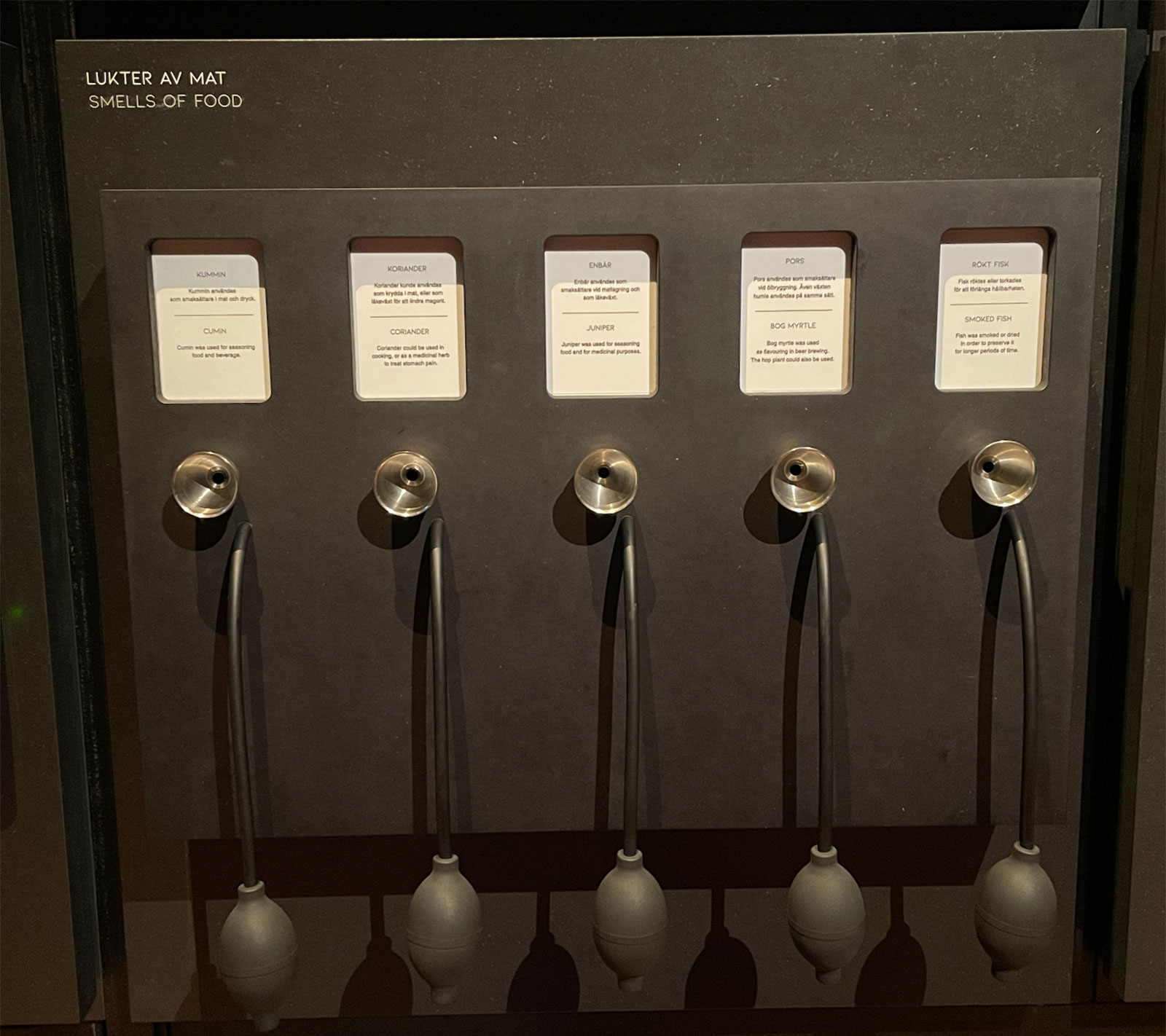
Embracing accessibility, Historiska offers solutions that make the exhibition more inclusive for visually impaired and blind visitors. In addition to standard exhibit descriptions embossed in Braille, the museum utilizes 3D printing technology. Key artifacts have been scanned and reproduced as three-dimensional models, allowing visitors to touch and explore their texture and shape, enhancing the tactile experience of the exhibition.
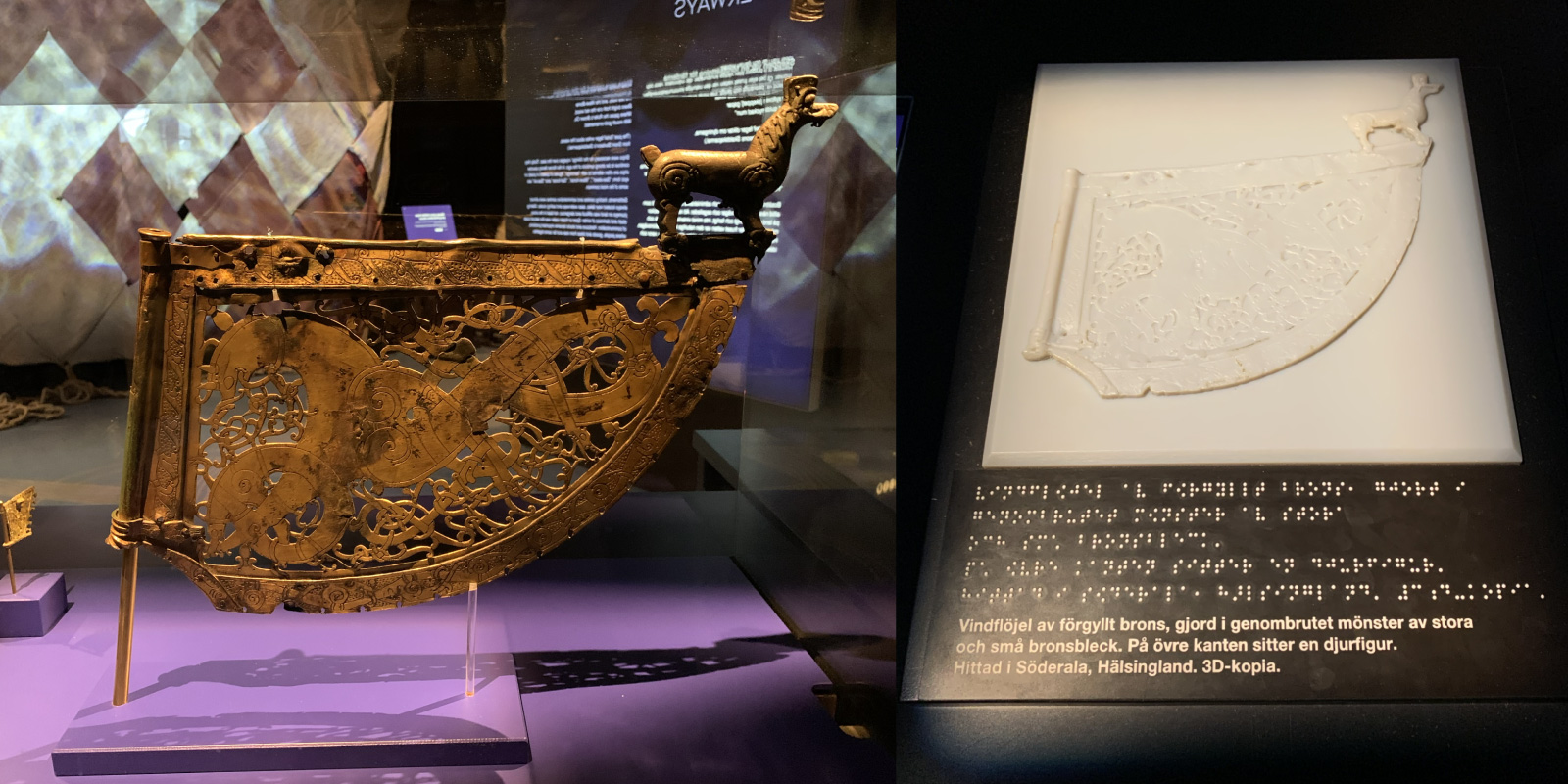
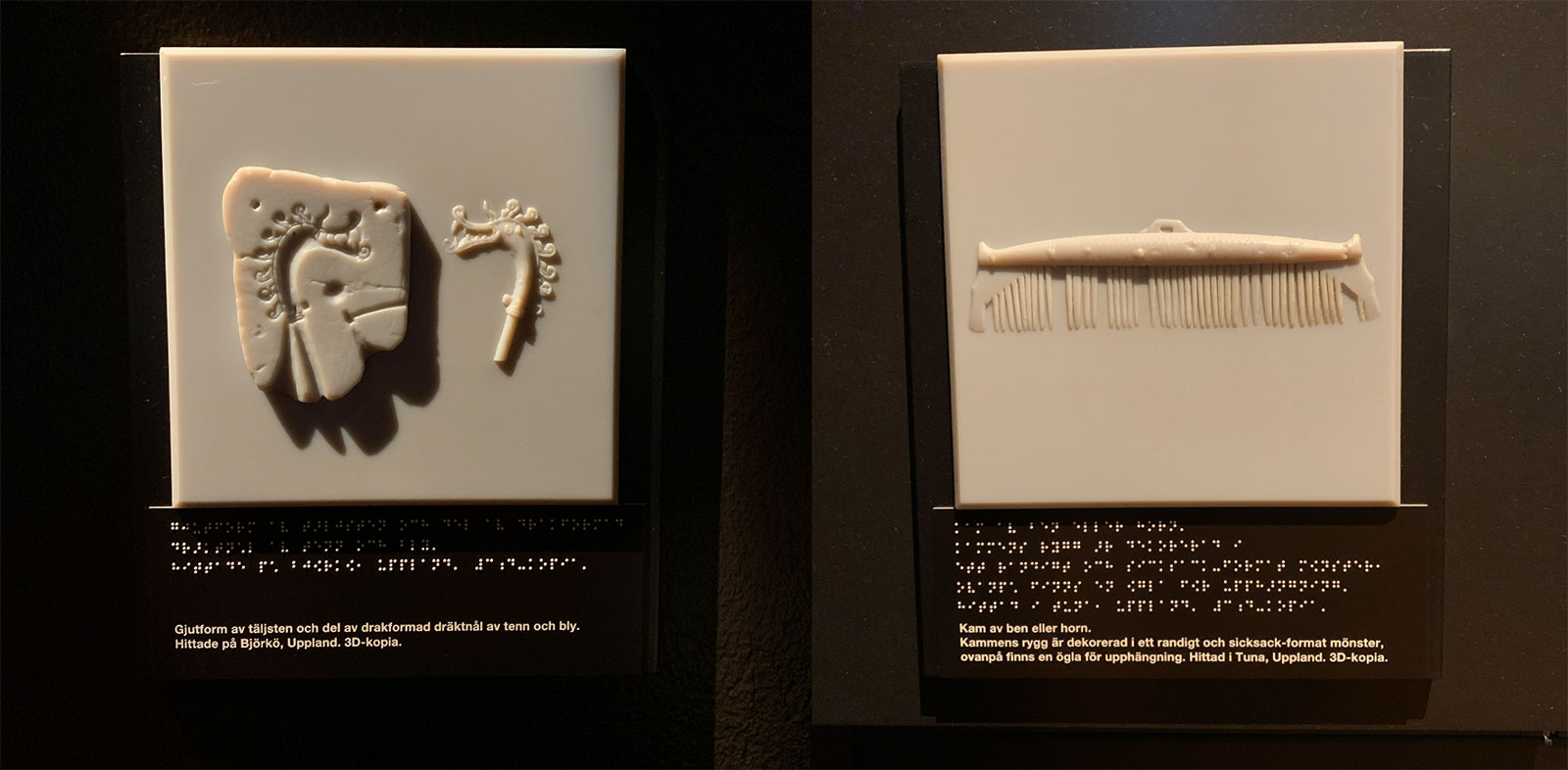
The exhibition space features numerous interactive stations designed to engage visitors and provide a deeper understanding of Viking life. Guests can arrange runes to spell their names, learn how to tie maritime knots, or explore the value of human life in the Viking era.
For those interested, a 3D virtual tour of a Viking village is available. This short experience requires wearing 3D glasses and following a guided scenario, offering a brief but immersive journey into the past.
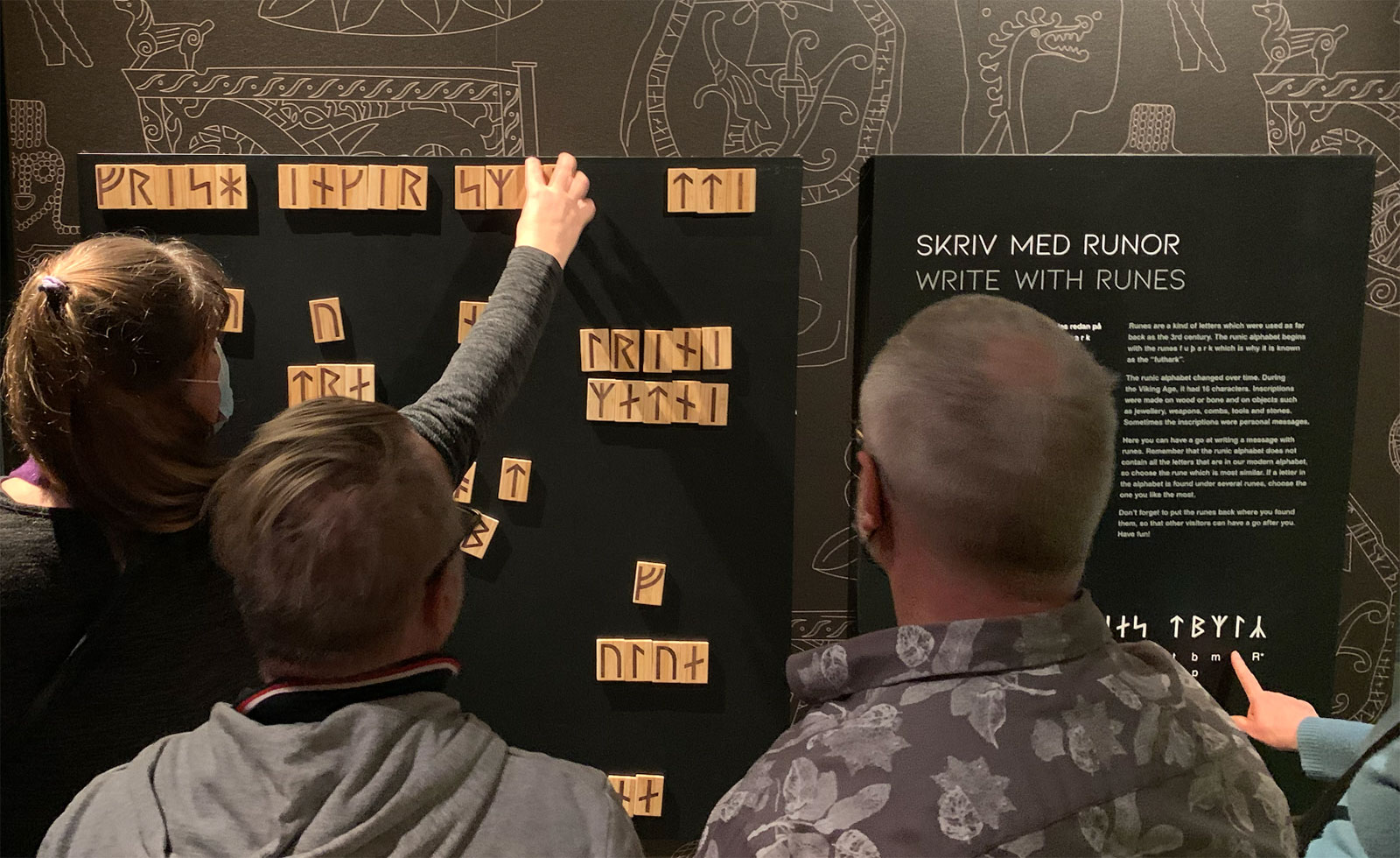
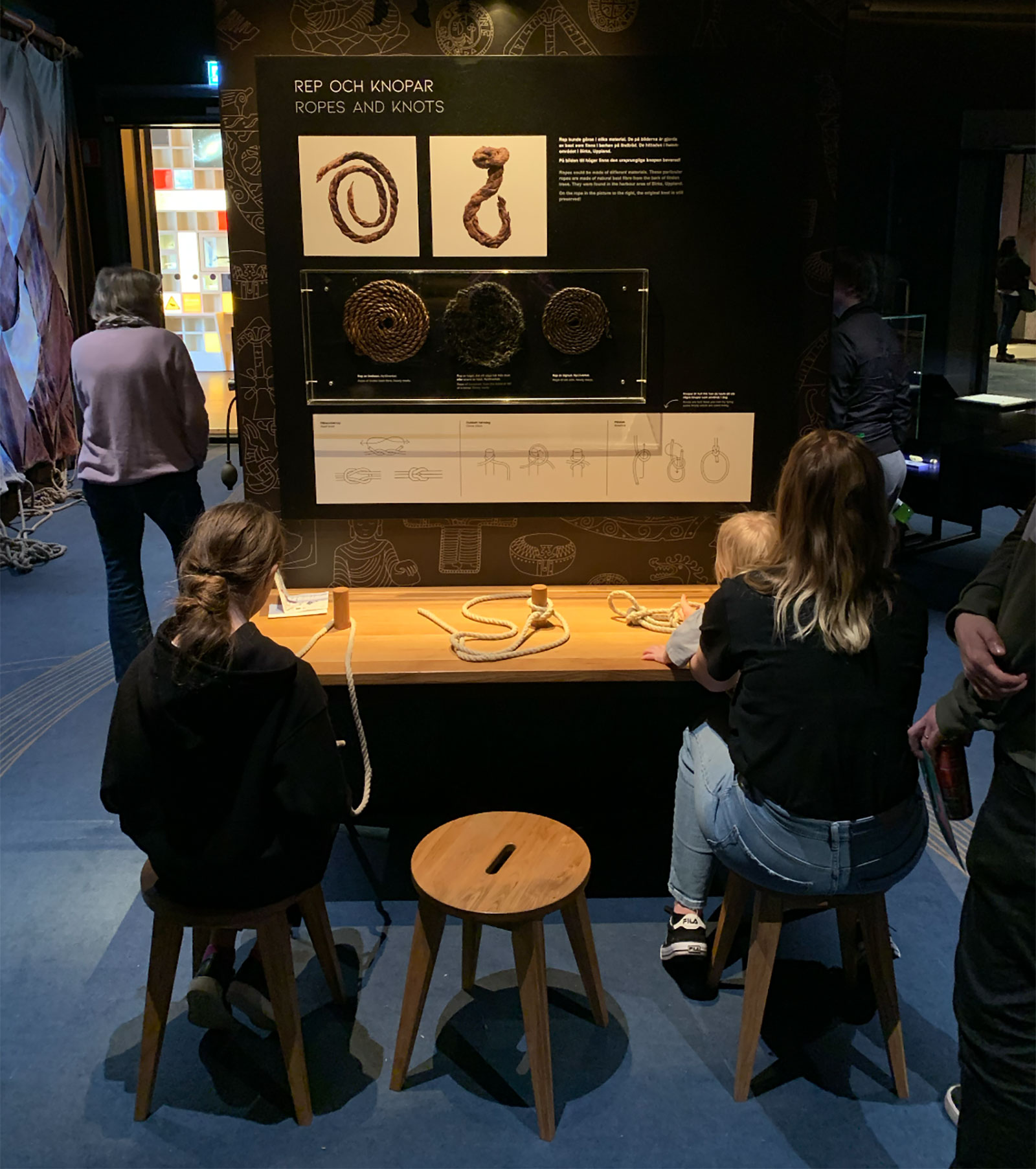
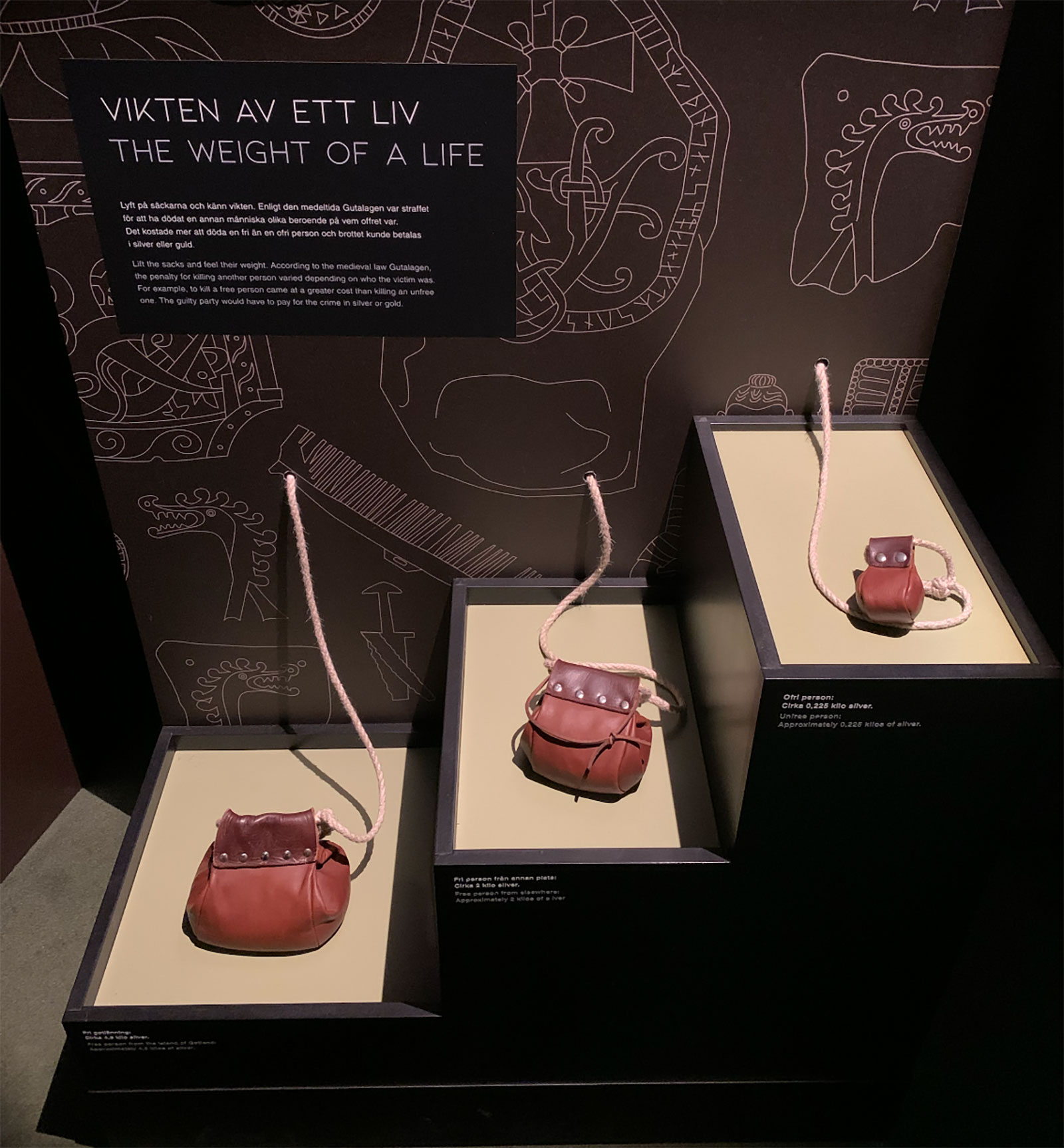
The exhibition space is fully designed in harmony with the spirit of the display. Not only the exhibit cases but the entire environment becomes part of the experience. Overhead, symbolic branches of the Yggdrasil tree weave through the ceiling, while the multicolored carpet is adorned with intricate ornaments. Structural columns are wrapped in decorative wallpaper featuring Old Norse glyphs, further immersing visitors in the atmosphere of the Viking world.
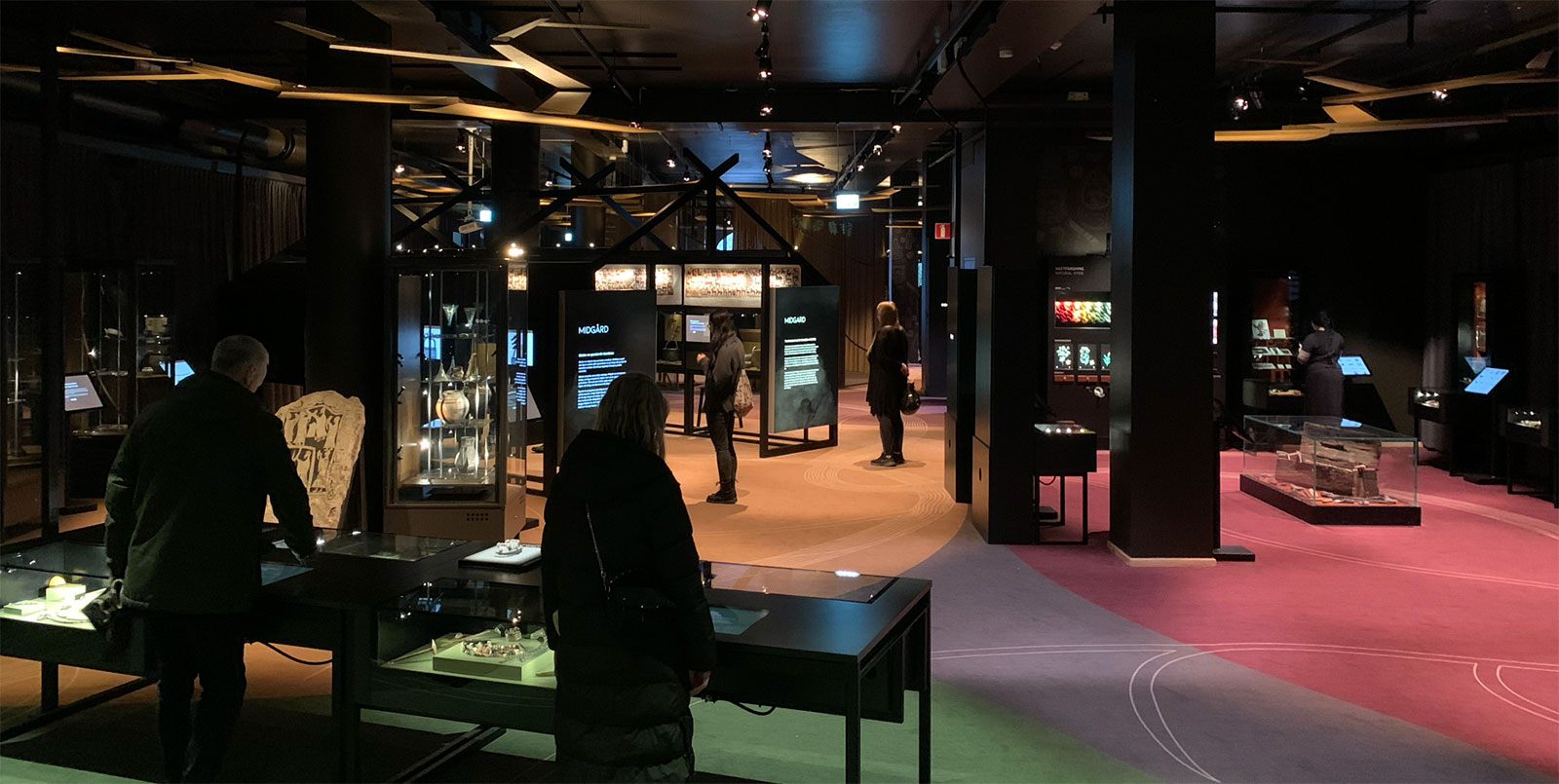
Light design creates an intimate atmosphere that helps visitors focus on the exhibition. Depending on the context, the space shifts between dim lighting, enhancing the visibility of animations projected onto rune stones, spotlighting, highlighting the most intriguing exhibits, and brighter, multicolored lighting, making it easier to engage with tasks at interactive stations.
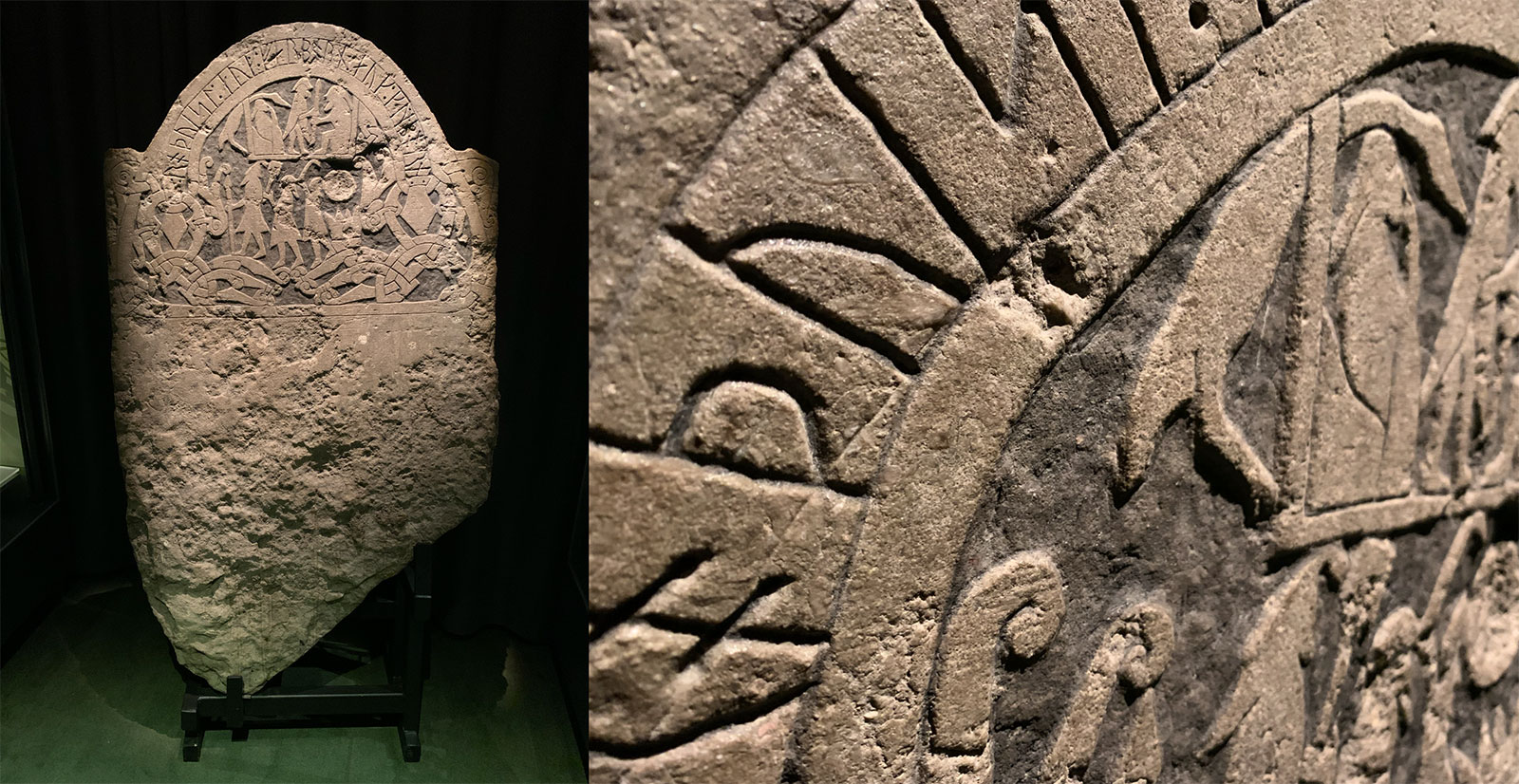
Many exhibits are arranged in a surprising and intriguing way. The composition and lighting of the sword display case or the suspended maritime nails forming the shape of a ship’s bow feel more reminiscent of an art gallery than a traditional museum exhibition.
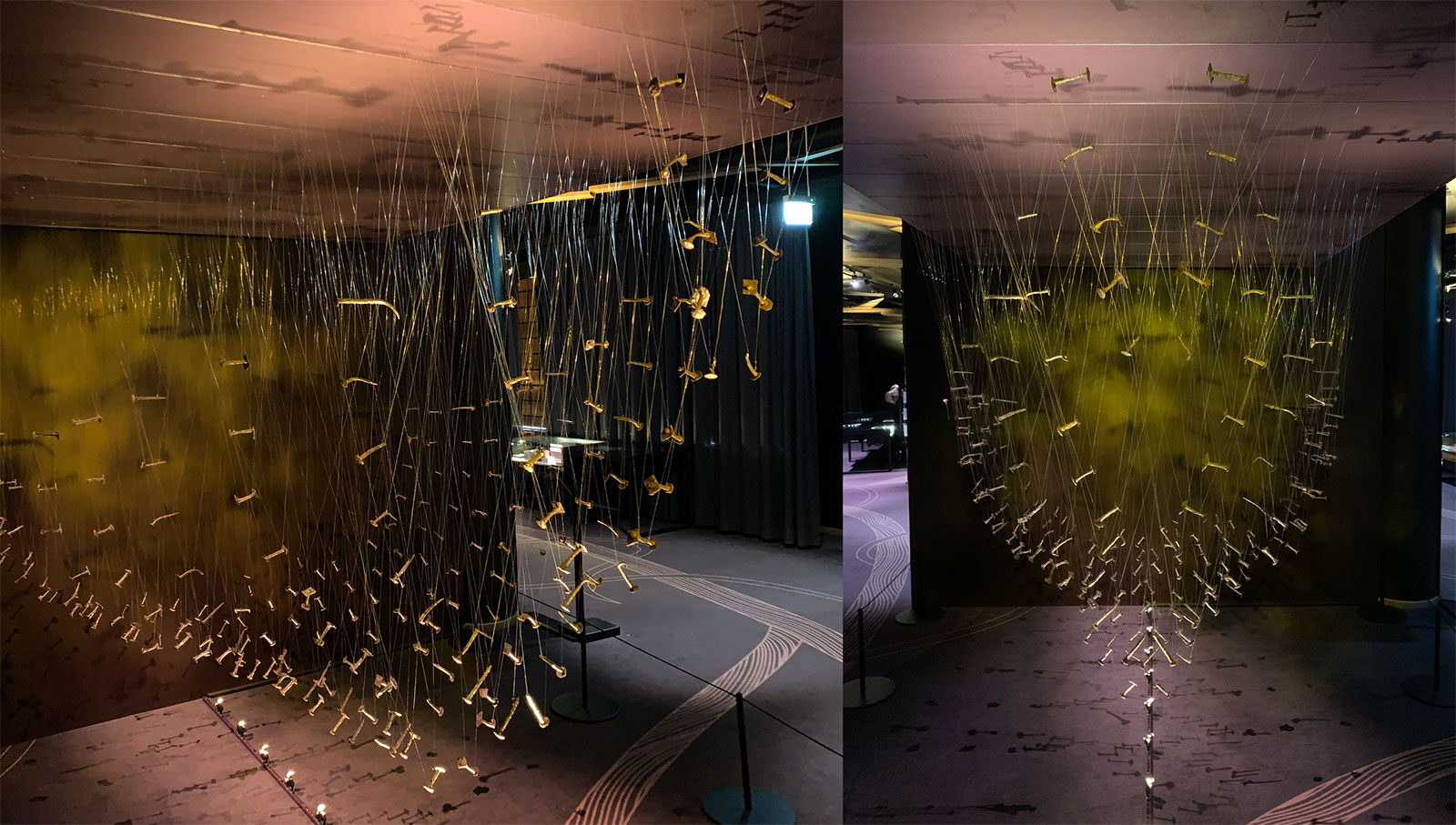
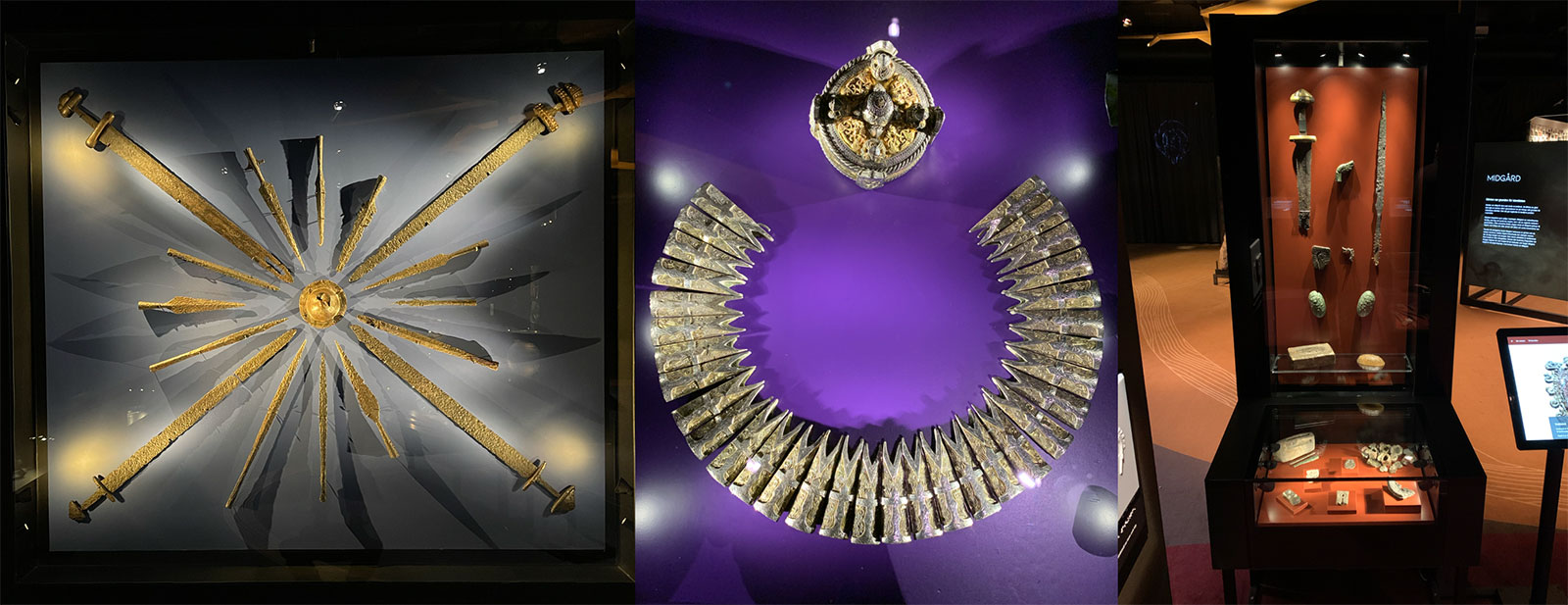
At the heart of the exhibition, a dedicated space is enclosed and designed in the form of a massive tree trunk. Inside this “Tree of Life,” large steps are lined with cushions for visitors to rest on, accompanied by books and coloring pages for children, while the soothing sounds of the forest fill the space. This calming atmosphere offers a break from the sensory-rich experience of the exhibition, allowing visitors to recharge before continuing to the equally immersive second half of the display.

Twoja wiadomość została wysłana.
Odpowiemy na nią tak szybko jak to możliwe!